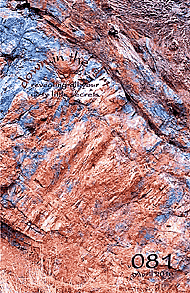



|
Order this writing in the book Chapter 38 (v3) The bonus volume of the Chapter 38 series |
 |
available as a $13.95 5.5"x8.5" book
| |
|
Order this writing in the collection book Evolution available for only 1395 or as a download for only 495 |
 |
|
| |
|
Order this writing in the book Laying the Groundwork |
 |
|
| |
| paperback (just issues) 5.5" x 8.5" book w/ b&w pages: $15.95 | paperback perfect-bound 5.5" x 8.5" book w/ b&w pages: $17.95 |
paperback 6" x 9" cc&d perfect-bound book w/ b&w pages: $21.95 |
paperback 6" x 9" cc&d perfect-bound book w/ color pages: $114.95 |
|||
 This writing was accepted for publication
This writing was accepted for publicationin the 84 page perfect-bound issue... Down in the Dirt magazine (v081) (the April 2010 Issue) This is also available from our printer as a a $7.47 paperback book (5.5" x 8.5") perfect-bound w/ b&w pages
|
|
Order this writing in the book (bound) Down in the Dirt prose edition |
 |
order the 5.5" x 8.5" ISSN# book order the 8.5" x 11" ISBN# book |
| ||
|
Order this writing in the 2010 6" x 9" ISBN# book Prepare Her For This of Janet Kuypers poetry based on a 1996 chapbooks, with expanded relevant writings |

|
|
Order this writing in the 2010 6" x 9" ISBN# book She’s an Open Book of Janet Kuypers poetry & prose from 2010 Scars releases, including magazines and performance art shapbooks. |

|
|
Order this writing in the 2010 6" x 9" ISBN# book Janet Kuypers: Enriched of Janet Kuypers poetry & prose from 2010 Scars releases, including magazines and performance art shapbooks. |

|
|
Order this writing in the poetry book by Janet Kuypers: Say Nothing Order this 6" x 9" ISBN# book today: |

|
|
| |
|
Order this writing in the poetry book by Janet Kuypers: Revealed Order this 6" x 9" ISBN# book today: |

|
|
| |
![]()




